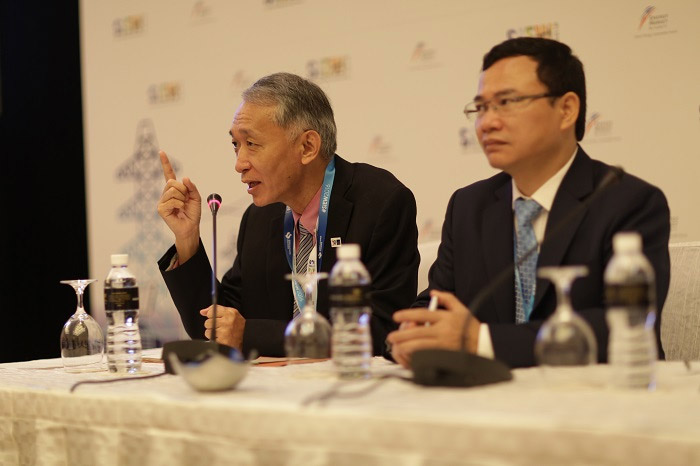
By Cheong Cui Wen
Many challenges still lie ahead for Asian countries to meet the Nationally Determined Contributions (NDCs) they committed to in the Paris Agreement, said panellists at a roundtable hosted by the Asian Development Bank (ADB) at Singapore International Energy Week (SIEW).
Developments in low-carbon technologies have placed Asia in a much better position to meet these NDCs but more can be done to aid technology transfer, said Venkatachalam Anbumozhi, Senior Energy Economist at the Economic Research Institute for ASEAN and East Asia (ERIA), Indonesia. For example, there is a need for free trade agreements, where tariff and non-tariff barriers are removed, to provide more access to technologies in a cost-effective way.
Another challenge highlighted was the high risks associated with developing and adopting low-carbon technologies.
There is uncertainty about these technologies due to the scarcity of information and statistics on their benefits, said Pham Van Tan, Deputy Director, General, Department of Hydrology, Meteorology and Climate Change (DMHCC), Ministry of Natural Resources and Environment (MONRE), Vietnam.
The lack of proper methodology to monitor low-carbon technologies further hinders this, said Professor Tan Xianchun, Deputy Director, Center of Overall Planning, Safety and Security Management, Institute of Policy and Management, Chinese Academy of Sciences. To inform China’s 13th Five-Year Plan and its long-term low-carbon policy, pilots have been conducted at provinces and cities in China to collect the necessary data, she added.
Incentives and skillsets to deploy and operate low-carbon technologies are also lacking. In Vietnam, for example, famers are used to farming via traditional methods to meet their daily needs and would not see the need to learn and adopt low-carbon technologies, said Pham.
To meet these challenges, regional cooperation is necessary, as well as more innovation in both technologies and financing instruments, said Yongping Zhai, Technical Advisor, ADB. He and Anbumozhi believed that south-south cooperation will aid technology transfers through learning and collaboration.